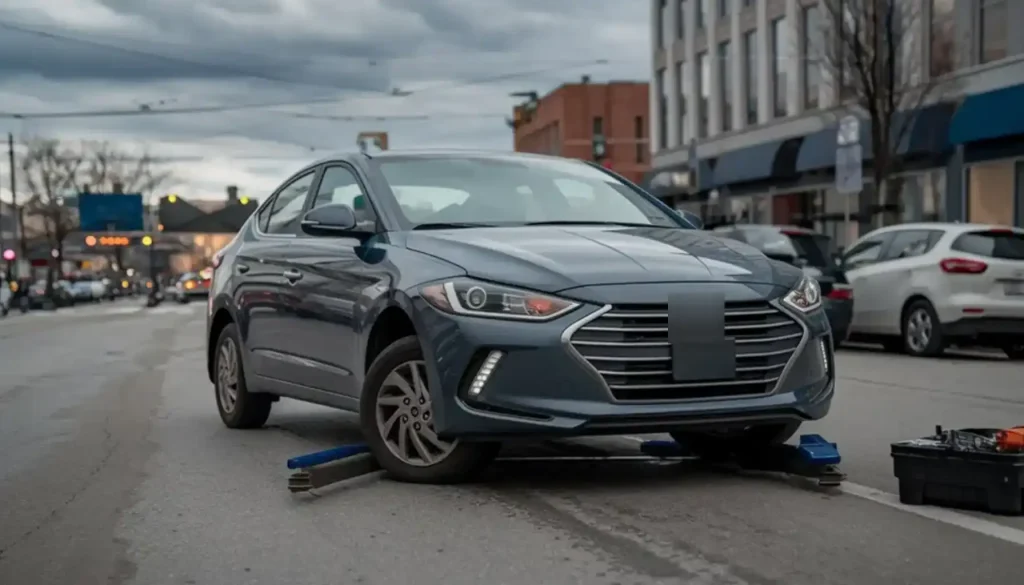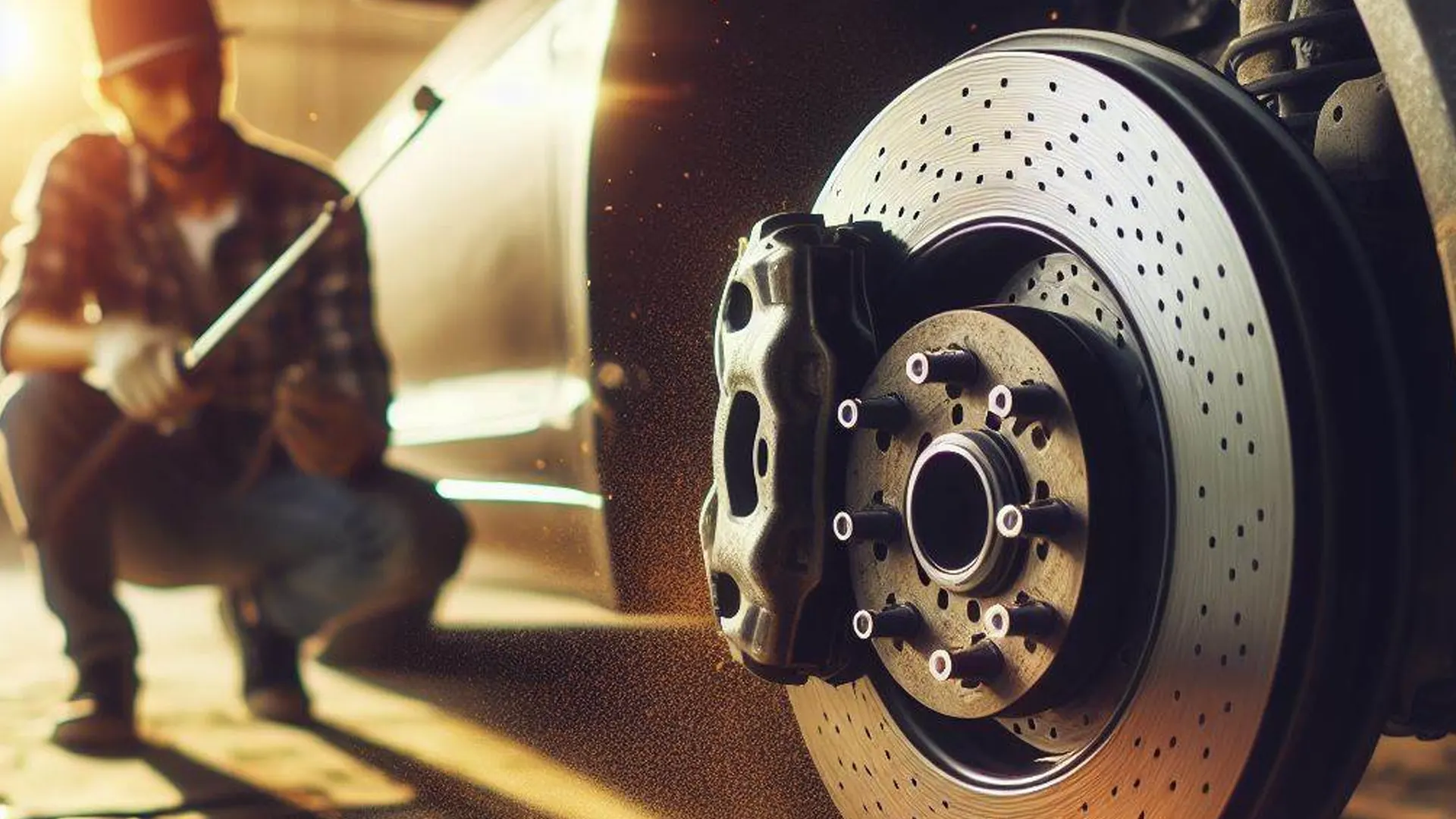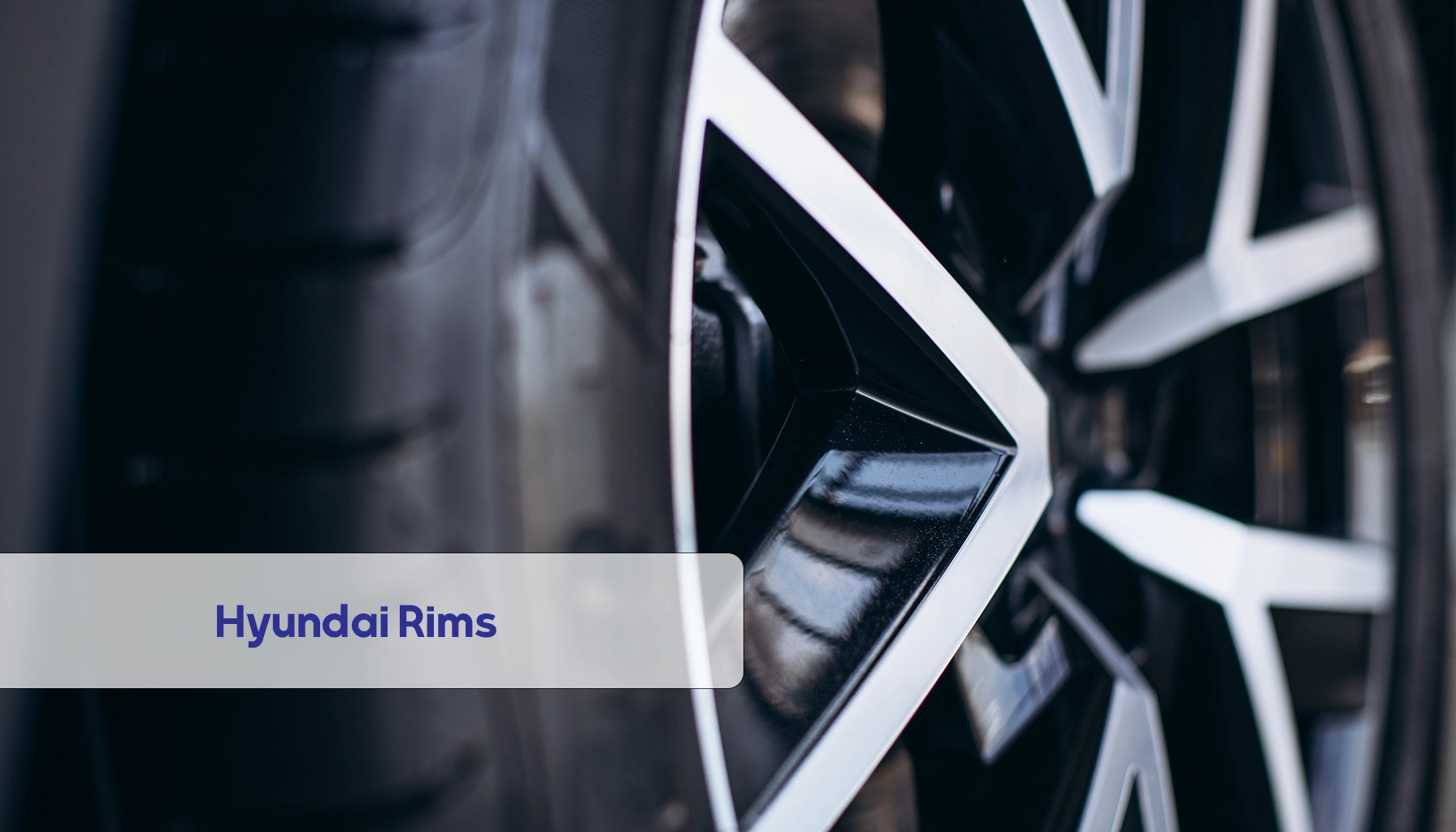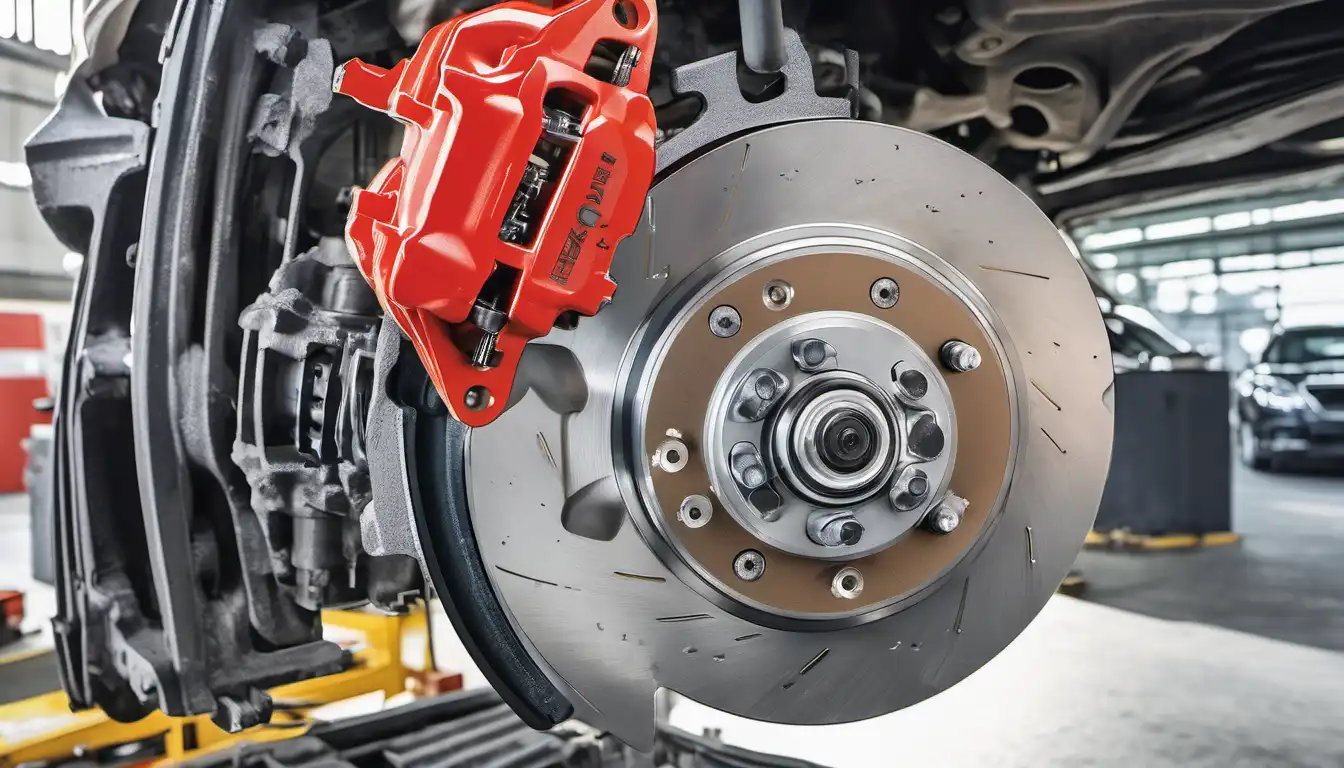Knowing early warning signs of mechanical failure when performing vehicle maintenance may save the car owner from costly repairs and hazardous driving conditions. It certainly is no exception with regards to the Hyundai axle shaft, a very important component in making your vehicle run smoothly. The axle shaft, now more commonly known as the CV or constant velocity and it has played a very critical role in the transmission of power from the transmission to the wheels.
Over time, however, this part also deteriorates and develops a set of symptoms whenever its replacement becomes necessary. If the Hyundai axle shaft starts failing and one does not pay too much attention to it, it may lead to further damage or hazardous driving conditions. This blog post will deal with common symptoms from a bad Hyundai axle shaft on models like Sonata, Elantra, Accent, Santa Fe, Veloster, and Tucson. Knowing them will enable you to know when something has gone wrong so that you may seek to have it checked before further damage occurs. Just strange noises 1st symptom of BAD Hyundai AXLE SHAFT
unusual noises is the 1st symptom of a BAD Hyundai AXLE SHAFT
One symptom that may indicate a problem with the Hyundai axle shaft is strange noises from the vehicle, mainly upon turns. A failing CV axle shaft tends to give specific sounds in most cases when its components have begun to deteriorate and get worn out. The major percentage of axle noise problems is due to the clicking sound of the axle, which is louder during sharp turns and corners.
This typically occurs because of the presence of an injured CV joint within the axle shaft, and this is usually indicated by popping or clicking noises. A further consequence of this type of injury, if left unattended, is complete joint failure.

The failing CV axle can also produce popping noises, which in most cases are signs that the joint has taken severe damage. The popping sounds can mostly be loud as you drive and sometimes get louder when accelerating or making a turn. If you hear unusual noises while operating your Hyundai-primarily turns-it’s important that you have your car checked by a professional for identification if this is really due to the Hyundai axle shaft.
The 2nd symptom of a bad axel is vibration!
In addition to strange sounds, a vibration during driving may also be related to the issue with the axle shaft in Hyundai. This concerns a vibration on the steering wheel or inside the body that usually gets worse during acceleration and at high-speed driving.
This is because a torn or worn CV axle shaft can no longer keep the wheels rotating smoothly. There are bound to be imbalances that cause these vibrations. The vibrations begin almost unnoticeably but will increase with time, as more damage to the axle shaft occurs. Such vibrations are important to note, since they may have effects on the overall handling of the vehicle, making driving not smooth and most uncomfortable.
If the car continuously vibrates at high speeds, especially upon acceleration, this surely spells that something in your Hyundai’s axle shaft needs your immediate attention. The earlier this problem is diagnosed, the easier and less expensive it will be to repair.
Take grease leakage seriously!
Another obvious sign that your Hyundai axle shaft is failing is grease leakage. The CV axle is protected by a rubber boot, otherwise known as a CV boot, which helps to keep the joint greased and free from dust and debris. Over time, however, this boot can crack or tear, allowing grease to leak out and exposing the joint to dirt and other contaminants. Grease spots on the ground where the vehicle is parked may indicate that the CV boot has been compromised, allowing the axle shaft to be in jeopardy of failure.
Also, if you check around the axle and it seems that your boot is cracked, damaged, or even covered with grease, then your Hyundai axle shaft also needs repair or replacement. Remember that a damaged CV boot will result in joint failure if left unattended. So one needs to consult without wasting any time if you find any signs of leakage of grease.
Axle shaft broken makes handling hard
Other symptoms of Hyundai axle shaft problems might be unusual handling or steering problems. A failed CV axle can make it harder to steer a vehicle and may result in the car being unstable or wobbly during driving. Yet another symptom can be that turning of the vehicle would require lots of effort, and this can give one a feeling that the vehicle is hung up, so to say.
This can further result in a larger radius of turn, or more clumsily put, it makes the turning of the vehicle quite difficult. This could be accentuated to result in very erratic or off-center steering-the worst nightmare on the highway.
If you start to experience problems with steering or if your vehicle does not turn the way that it should, it is important that you have your Hyundai axle shaft checked out as soon as possible. The sooner these handling issues are addressed, the less likely further damage will happen, and the safer your vehicle will be to drive.
Knowing early warning signs of mechanical failure when performing vehicle maintenance may save the car owner from costly repairs and hazardous driving conditions. It certainly is no exception with regards to the Hyundai axle shaft, a very important component in making your vehicle run smoothly. The axle shaft, now more commonly known as the CV or constant velocity and it has played a very critical role in the transmission of power from the transmission to the wheels.
Over time, however, this part also deteriorates and develops a set of symptoms whenever its replacement becomes necessary. If the Hyundai axle shaft starts failing and one does not pay too much attention to it, it may lead to further damage or hazardous driving conditions. This blog post will deal with common symptoms from a bad Hyundai axle shaft on models like Sonata, Elantra, Accent, Santa Fe, Veloster, and Tucson. Knowing them will enable you to know when something has gone wrong so that you may seek to have it checked before further damage occurs. Just strange noises 1st symptom of BAD Hyundai AXLE SHAFT
unusual noises is the 1st symptom of a BAD Hyundai AXLE SHAFT
One symptom that may indicate a problem with the Hyundai axle shaft is strange noises from the vehicle, mainly upon turns. A failing CV axle shaft tends to give specific sounds in most cases when its components have begun to deteriorate and get worn out. The major percentage of axle noise problems is due to the clicking sound of the axle, which is louder during sharp turns and corners.
This typically occurs because of the presence of an injured CV joint within the axle shaft, and this is usually indicated by popping or clicking noises. A further consequence of this type of injury, if left unattended, is complete joint failure.
The failing CV axle can also produce popping noises, which in most cases are signs that the joint has taken severe damage. The popping sounds can mostly be loud as you drive and sometimes get louder when accelerating or making a turn. If you hear unusual noises while operating your Hyundai-primarily turns-it’s important that you have your car checked by a professional for identification if this is really due to the Hyundai axle shaft.
The 2nd symptom of a bad axel is vibration!
In addition to strange sounds, a vibration during driving may also be related to the issue with the axle shaft in Hyundai. This concerns a vibration on the steering wheel or inside the body that usually gets worse during acceleration and at high-speed driving.
This is because a torn or worn CV axle shaft can no longer keep the wheels rotating smoothly. There are bound to be imbalances that cause these vibrations. The vibrations begin almost unnoticeably but will increase with time, as more damage to the axle shaft occurs. Such vibrations are important to note, since they may have effects on the overall handling of the vehicle, making driving not smooth and most uncomfortable.
If the car continuously vibrates at high speeds, especially upon acceleration, this surely spells that something in your Hyundai’s axle shaft needs your immediate attention. The earlier this problem is diagnosed, the easier and less expensive it will be to repair.
Take grease leakage seriously!
Another obvious sign that your Hyundai axle shaft is failing is grease leakage. The CV axle is protected by a rubber boot, otherwise known as a CV boot, which helps to keep the joint greased and free from dust and debris. Over time, however, this boot can crack or tear, allowing grease to leak out and exposing the joint to dirt and other contaminants. Grease spots on the ground where the vehicle is parked may indicate that the CV boot has been compromised, allowing the axle shaft to be in jeopardy of failure.
Also, if you check around the axle and it seems that your boot is cracked, damaged, or even covered with grease, then your Hyundai axle shaft also needs repair or replacement. Remember that a damaged CV boot will result in joint failure if left unattended. So one needs to consult without wasting any time if you find any signs of leakage of grease.
Axle shaft broken makes handling hard
Other symptoms of Hyundai axle shaft problems might be unusual handling or steering problems. A failed CV axle can make it harder to steer a vehicle and may result in the car being unstable or wobbly during driving. Yet another symptom can be that turning of the vehicle would require lots of effort, and this can give one a feeling that the vehicle is hung up, so to say.
This can further result in a larger radius of turn, or more clumsily put, it makes the turning of the vehicle quite difficult. This could be accentuated to result in very erratic or off-center steering-the worst nightmare on the highway.
If you start to experience problems with steering or if your vehicle does not turn the way that it should, it is important that you have your Hyundai axle shaft checked out as soon as possible. The sooner these handling issues are addressed, the less likely further damage will happen, and the safer your vehicle will be to drive.
Conclusion
Bad Hyundai axle shaft symptoms diagnoses can save you from severe damage and expensive repair costs for your vehicle. One of the earliest symptoms when an axle shaft starts going bad is strange noises, mostly any clicking or popping sound during the turn.
Other major warning signs to look out for include Vibrations during driving, leaking grease, and issues with handling – all good reasons to know that something is wrong with the CV axle shaft.
If you have any of these symptoms in your Hyundai Sonata, Elantra, Accent, Santa Fe, Veloster, or Tucson, it really is a great idea to allow it to be professionally checked by a mechanic as soon as possible. It is way more effective in terms of the wallet to have axle shaft problems caught early on to avoid further damage and also assure that the car keeps on running.
If the symptoms persist, then researching replacement options for the Hyundai axle shaft would be a better option to restore your car’s performance and safety. The Hyundai axle shaft is an essential part of the vehicle drivetrain, which assists in transmitting power from the transmission to the wheels. Over time, this component will wear out from extensive use and could potentially cause a set of symptoms upon failure.
Knowing the signs of a bad CV axle shaft and taking action once those symptoms appear is how you maintain your Hyundai and prevent costly repairs.
Whatever your symptoms are, like strange noises, vibrations, leakage of grease, or problems with handling, being up to date with axle shaft issues is incredibly important to maintain the longevity and performance of your vehicle.
If there is still some doubt about the condition of the axle shaft, or if one suspects it to be damaged, then consultation with a qualified mechanic is needed. If properly looked after, your Hyundai axle shaft will continue to give you good service over the coming years.
Final Thoughts
Bad Hyundai axle shaft symptoms diagnoses can save you from severe damage and expensive repair costs for your vehicle. One of the earliest symptoms when an axle shaft starts going bad is strange noises, mostly any clicking or popping sound during the turn.
Other major warning signs to look out for include Vibrations during driving, leaking grease, and issues with handling – all good reasons to know that something is wrong with the CV axle shaft.
If you have any of these symptoms in your Hyundai Sonata, Elantra, Accent, Santa Fe, Veloster, or Tucson, it really is a great idea to allow it to be professionally checked by a mechanic as soon as possible. It is way more effective in terms of the wallet to have axle shaft problems caught early on to avoid further damage and also assure that the car keeps on running.
If the symptoms persist, then researching replacement options for the Hyundai axle shaft would be a better option to restore your car’s performance and safety. The Hyundai axle shaft is an essential part of the vehicle drivetrain, which assists in transmitting power from the transmission to the wheels. Over time, this component will wear out from extensive use and could potentially cause a set of symptoms upon failure.
Knowing the signs of a bad CV axle shaft and taking action once those symptoms appear is how you maintain your Hyundai and prevent costly repairs.
Whatever your symptoms are, like strange noises, vibrations, leakage of grease, or problems with handling, being up to date with axle shaft issues is incredibly important to maintain the longevity and performance of your vehicle.
If there is still some doubt about the condition of the axle shaft, or if one suspects it to be damaged, then consultation with a qualified mechanic is needed. If properly looked after, your Hyundai axle shaft will continue to give you good service over the coming years.



